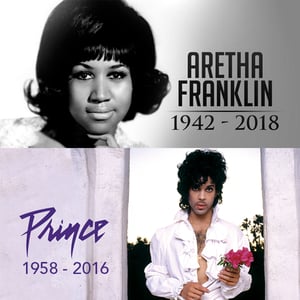 Everyone should have a will…PERIOD.
Everyone should have a will…PERIOD.
Without it, all of your hard work could end up exactly where you don’t want it. Not only will it ensure that your belongings stay with family (or not, depending on your relationship), but it makes the process smoother and less likely to cause strife.
Look at Aretha Franklin. After her passing it was discovered that she had no will and her $80 Million estate is now tangled in a legal mess. While the law in Michigan states that her estate be evenly divided among her 4 adult sons, it is likely that her assets will be contested.
The same thing happened with Prince and his estimated $150 Million estate. It’s been two years and his estate is still being contested, as heirs have come forth to insist upon ownership of his estate – including his 5 half siblings, one of whom hasn’t seen him in over 15 years. Prince also left behind thousands of hours of unpublished music, and both the rights and releasability of those tracks have been up for raucous debate in the absence of a will’s clear directive.
When it comes to wills, there are three main parts you need to focus on:
- Understand why you need a will
- Find the right attorney (or software) to prepare it
- Execute and update it
Why you need a will.
Simply, a will states where you want your assets to go when you die. Additionally, it designates who will be take care of, and be legally responsible for your children - if they are minors. Without a will, all of your assets/estate will need to go through probate, which is the judicial process whereby the estate is settled according to the laws of intestacy [the condition of the estate of a person who dies without having made a valid will] in the state of residence of the deceased at time of death in the absence of a legal will. Short version - without a will the courts decide what to do with your money and assets.
Something else to keep in mind - if you have children who are minors, consider a trust instead of a will as minors are not able to inherit assets directly. If you have a will with a minor designated as the beneficiary, the estate will go to probate which can be costly.
Drafting your will.
Use an attorney or reputable software instead of trying to do it yourself, as you may miss some important steps. There are lawyers who specialize in estate planning, and you should be able to find them through your state’s bar association. If you're firmly in the middle class, and your financial portfolio is fairly simple, you can probably get away with writing a will using a legal online site. But if you are upper-middle class or worth millions, hire an estate attorney.
With your will, you will need to decide on an executor as well as who will have power of attorney if you are incapacitated. Be sure to have second and third alternatives if possible.
Executing and updating your will.
Make sure to revisit and update the document every few years to reflect any necessary changes, especially after any significant life event to ensure your personal belongings are distributed according to your wishes. Major life events include things such as a marriage, divorce, birth or death.
If you are doing your will yourself, be sure to check your state’s requirements to ensure it is official. For example, you may need to have it signed and notarized with 1,2, or 3 witnesses – depending on the state. In many counties, it also needs to be filed with the county clerk to be official.
In addition to finalizing your will, it is also a good idea to put together a document that lays out everything someone may need to know, such as;
- List of bank accounts
- Where to find important documents (documents, birth certificates, etc.)
- Computer and program passwords
- Where life insurance policies are
- Location of safe deposit box, keys, etc.
- Important recurring payments (e.g., property taxes).
While this doesn't cover everything, hopefully this gives you enough of a push to get your will completed. Too often, we see people's money, that they have spent their whole life building, go toward something they would not have wanted, all because they didn't have a will. And yes, we know it isn't the most pleasant thing to think about, but as my old econ teacher used to say, "Only two things in life are certain. You pay taxes, and you die."
Don’t lose everything you have built because you don’t have a will. Ensure your legacy and start the process today. For questions or help, contact one of our advisors today.
This blog does not address all the intricacies associated with last wills and living trusts. Consulting with a competent attorney can help you make the right decision.

